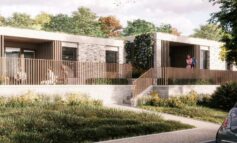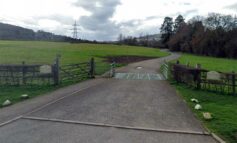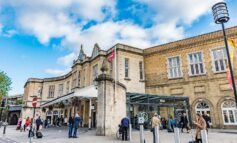Council tax bills have been frozen for the fifth year running as councillors agreed the Council’s budget at a meeting last night, with a focus on protecting essential public services.

Cllr David Bellotti (Lib-Dem, Lyncombe), the Council’s Cabinet Member for Resources, said: “Our sound financial management has allowed the Council to deliver over £30million in savings whilst protecting essential frontline services, as well as taking on new legal responsibilities such as the Care Act.
“We will continue our focus on supporting vulnerable people in the community whilst investing in the future prosperity of our communities with new homes, jobs and local facilities.
“For the fourth year running of this administration we are proposing no increase in council tax. Thanks to our prudent financial management we are also able to do more to address poverty through the welfare support fund, which supports foodbanks and helps tackle the misery caused by payday loans.
“We also plan to offer local businesses the chance to bid first on contracts up to £50,000, before going out to the wider market – previously the threshold was £25,000, and to increase minimum pay for Council staff to meet the Living Wage.”
Key points:
- Council Tax frozen for the fifth year running (£1,201.85 for a ‘Band D’ property) – recognising the on-going pressure on household incomes.
- This budget sets out a capital spending programme of £84.9m which includes £6.6m for school expansions across the district to meet rising demand for pupil places; £5.9m for highway maintenance and improvements and £1.9m on transport initiatives.
- Despite financial pressures, the Council has managed a balanced budget of £119,843,000 for 2015/16.
- The Council faces significant reductions (14%) in Government funding this year; and faces further financial challenges in the years to come.
Priority areas for the Council covered by the budget include:
Investment in schools
The budget allocates £6.6m for school expansions across the district to meet rising demand for pupil places.
This includes:
- £2.5m for a new school at Ensleigh – to serve the Ensleigh North, Ensleigh South, Royal High School playing fields and Hope House developments, as well as to provide places to meet needs of population growth in the local area.
- £1.984m for two additional classrooms and to replace three temporary classrooms at Bishop Sutton Primary School.
- £1.771m for four extra classrooms and a hall extension at Paulton Junior School.
- Improvement works at Oldfield Park Junior School (£200k); Westfield Primary School (£100k); St John’s School Keynsham (£59k).
Tackling Poverty
- To help alleviate poverty the Welfare Support Fund will be maintained at £250k, despite a loss of some of the Government grant. This will support food banks; work to help local people replace payday loans with much lower cost borrowing; increase minimum pay for Council staff to meet the Living Wage.
- The Council will continue to develop the Connecting Families programme and work to reduce unemployment for adults and school leavers.
Supporting vulnerable people
Support for the most vulnerable members of the community remains a priority. The budget also recognises changes in funding, emerging priorities and new legal responsibilities coming to the Council.
- Working with NHS B&NES Clinical Commissioning Group, the Council has agreed plans to allocate £12 million from the Department of Health’s Better Care Fund to provide integrated care and support for older and vulnerable people.
- In addition, the Care Act brings new duties around social care services into the Council from April 1. The budget allows for investment of more than £1.5million to fund the extra costs associated with this during 2015/16.
Investing in the local economy
- Local businesses will be offered the chance to bid first on contracts up to £50,000, before going out to the wider market – previously the threshold was £25,000.
- Bath & North East Somerset Council is the lead authority for the Somerset Business Rates Pool which could see up to £2million in business rates being retained to boost the local economy across Somerset. These will be reinvested into the local economy.
- To date the Council has secured £6.2m of external investment to pay for infrastructure to enable the development of the Bath City Riverside Scheme, which aims to create up to 9,000 new jobs and 3,400 new homes.
Affordable homes
- It is anticipated that between 2011 and 2015, 750 new affordable homes will have been completed.
- Homes and Communities Agency funding of £1,788,536 has been awarded to deliver 60 new affordable homes at Bath Western Riverside and Radstock between 2015 and 2018, supported by additional funding from Curo Group. The Council is match funding these projects with £1.9m.
- Over the next year affordable housing will be developed in Bath city centre, Keynsham, Midsomer Norton, Paulton, Radstock and High Littleton.
- There will also be Council investment in rural housing, bringing empty homes back into use and delivering new housing for households with specific needs.
- New affordable housing will also be developed on former Ministry of Defence sites and on other strategic sites across the area.
Future challenges and opportunities
- The West of England sub-region can now retain any growth in business rates collected within the Enterprise Areas and Enterprise Zone, including Bath City Enterprise Area. This will be reinvested through an Economic Development Fund of around £500m into infrastructure to support jobs and business growth in the West of England over the next 25 years.
- Given the scale of savings already achieved and those outlined the budget, the Council estimates that it will need to make further savings or additional income of over £38m in the years 2016/17 to 2019/20.
- The Council will therefore seek to develop a new Medium Term Financial Plan during 2015/16 to cover the next four-year period, once further information becomes available on the overall level of resourcing available to local government.
The following amendments were made by Council to the Cabinet budget proposal:
Feasibility study
The Council has agreed to put £30,000 into a feasibility study into changing the Peasedown St John junction with the A367 bypass on the Radstock side of the village – this will include consultation on options to address problems.
Affordable homes
An additional £620,750 from the affordable housing capital budget will be carried forward to 2015-16. Also, if the £3m affordable housing reserve is not required for affordable housing at Bath Western Riverside, it will be support an increase in the proportion of affordable housing in other major developments.
Transport strategies
Up to £55,000 will be used to enable the commissioning and production of transport strategies for the Somer Valley and Chew Valley and rural areas.
RUH parking
£10,000 earmarked to support a feasibility study to explore the possibility of providing financial support to the RUH, in the form of a market loan or other form of investment, to enable a greater increase in on-site parking provision than currently planned.
It was also agreed to include a series of smaller traffic improvements across the area.



